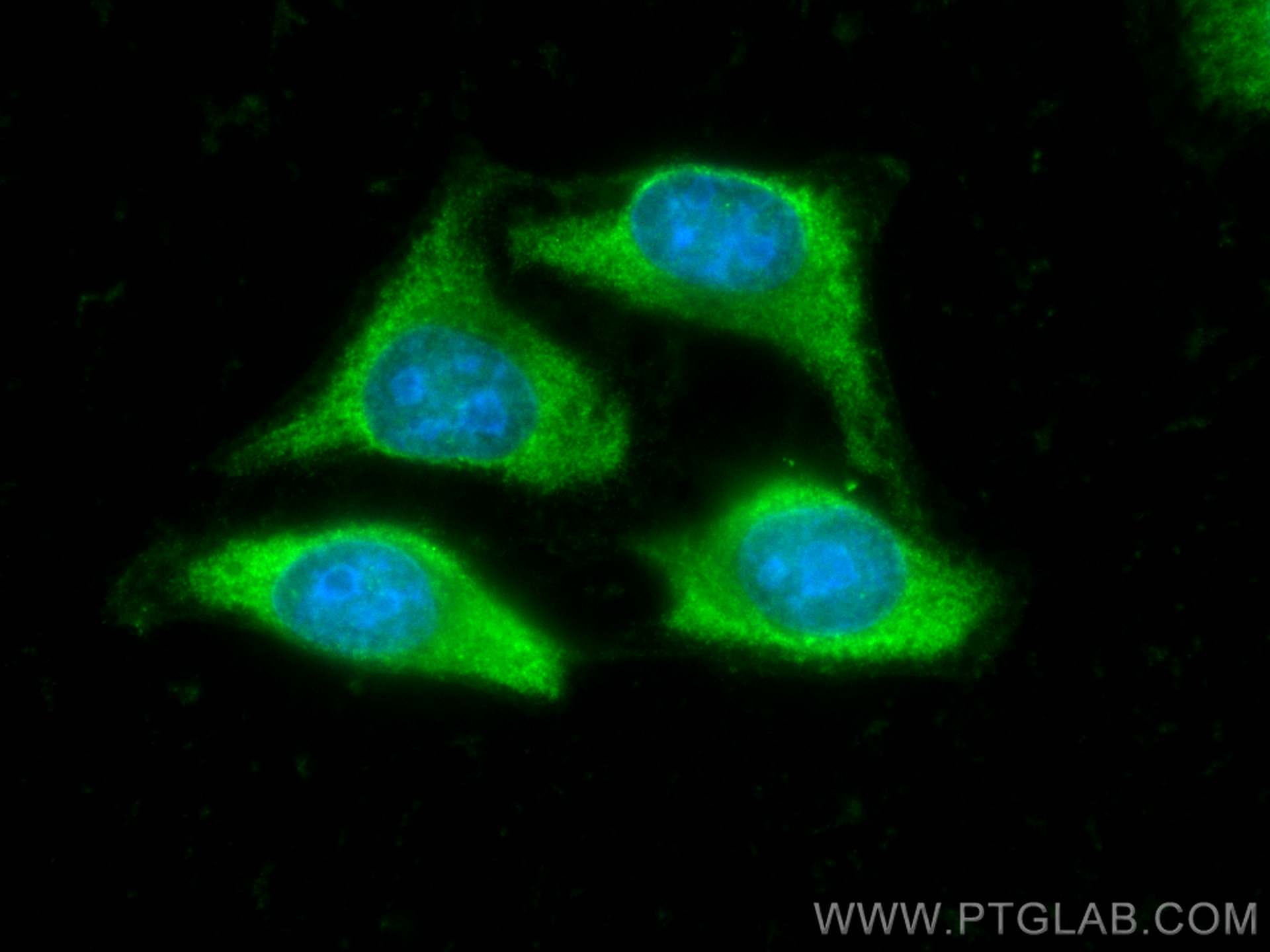Tested Applications
| Positive IF/ICC detected in | HepG2 cells |
Recommended dilution
| Application | Dilution |
|---|---|
| Immunofluorescence (IF)/ICC | IF/ICC : 1:50-1:500 |
| It is recommended that this reagent should be titrated in each testing system to obtain optimal results. | |
| Sample-dependent, Check data in validation data gallery. | |
Product Information
CL488-66505 targets MDH1 in IF/ICC applications and shows reactivity with Human, mouse samples.
| Tested Reactivity | Human, mouse |
| Host / Isotype | Mouse / IgG1 |
| Class | Monoclonal |
| Type | Antibody |
| Immunogen | MDH1 fusion protein Ag8744 Predict reactive species |
| Full Name | malate dehydrogenase 1, NAD (soluble) |
| Calculated Molecular Weight | 334 aa, 36 kDa |
| Observed Molecular Weight | 36-37 kDa |
| GenBank Accession Number | BC001484 |
| Gene Symbol | MDH1 |
| Gene ID (NCBI) | 4190 |
| RRID | AB_2934468 |
| Conjugate | CoraLite® Plus 488 Fluorescent Dye |
| Excitation/Emission Maxima Wavelengths | 493 nm / 522 nm |
| Form | Liquid |
| Purification Method | Protein G purification |
| UNIPROT ID | P40925 |
| Storage Buffer | PBS with 50% glycerol, 0.05% Proclin300, 0.5% BSA, pH 7.3. |
| Storage Conditions | Store at -20°C. Avoid exposure to light. Stable for one year after shipment. Aliquoting is unnecessary for -20oC storage. |
Background Information
MDH1 (Malate dehydrogenase, cytoplasmic) is also named as MDHA and belongs to the LDH/MDH superfamily and MDH type 2 family which catalyzes the reversible oxidation of malate to oxaloacetate, utilizing the NAD/NADH cofactor system in the citric acid cycle. It can exsit as a dimer and the dimeric MDH1 is the mitochondrial isoenzyme, whereas the tetrameric MDH2 is the glycosomal isoenzyme. (PMID:10693743)
Protocols
| Product Specific Protocols | |
|---|---|
| IF protocol for CL Plus 488 MDH1 antibody CL488-66505 | Download protocol |
| Standard Protocols | |
|---|---|
| Click here to view our Standard Protocols |



